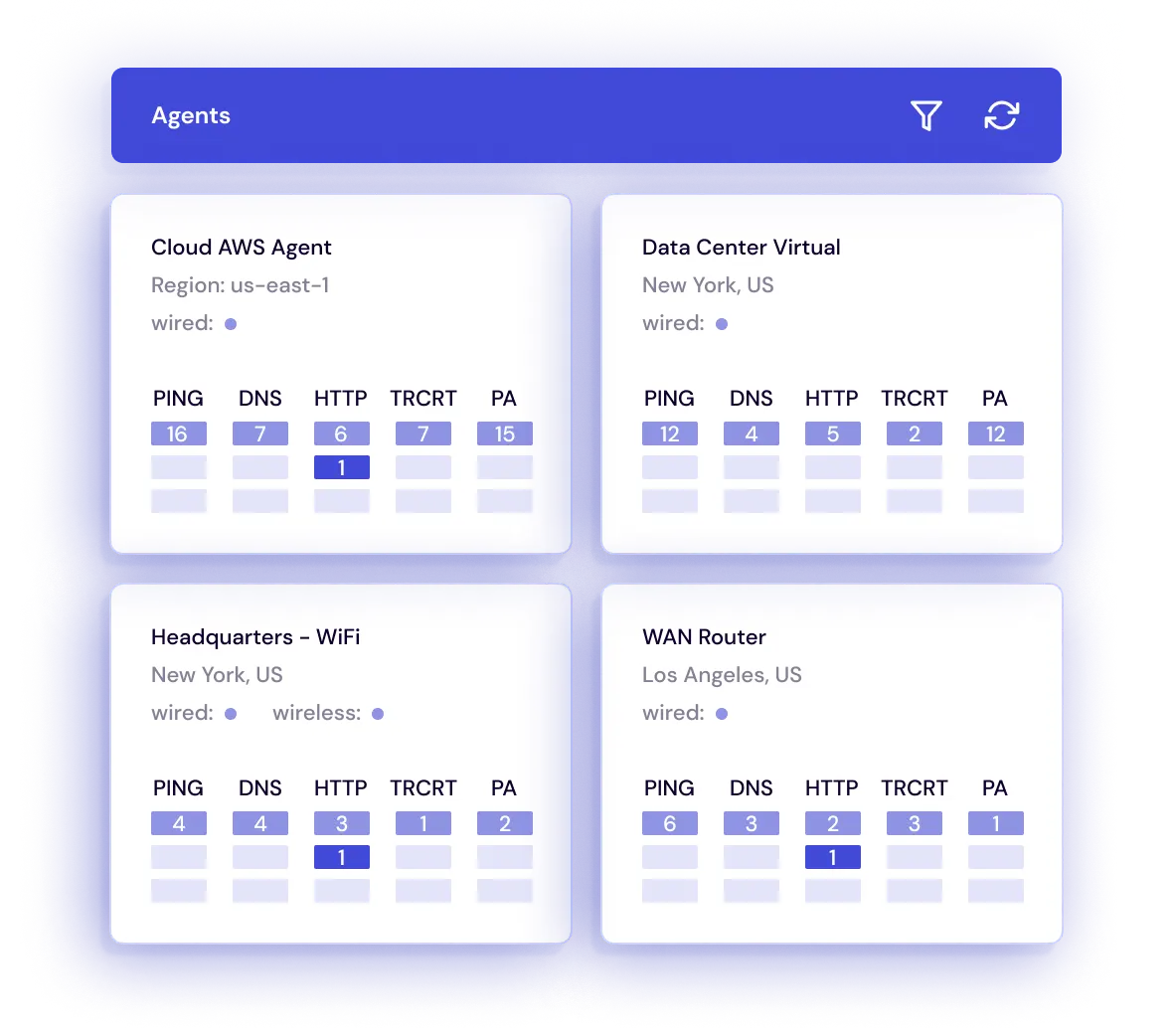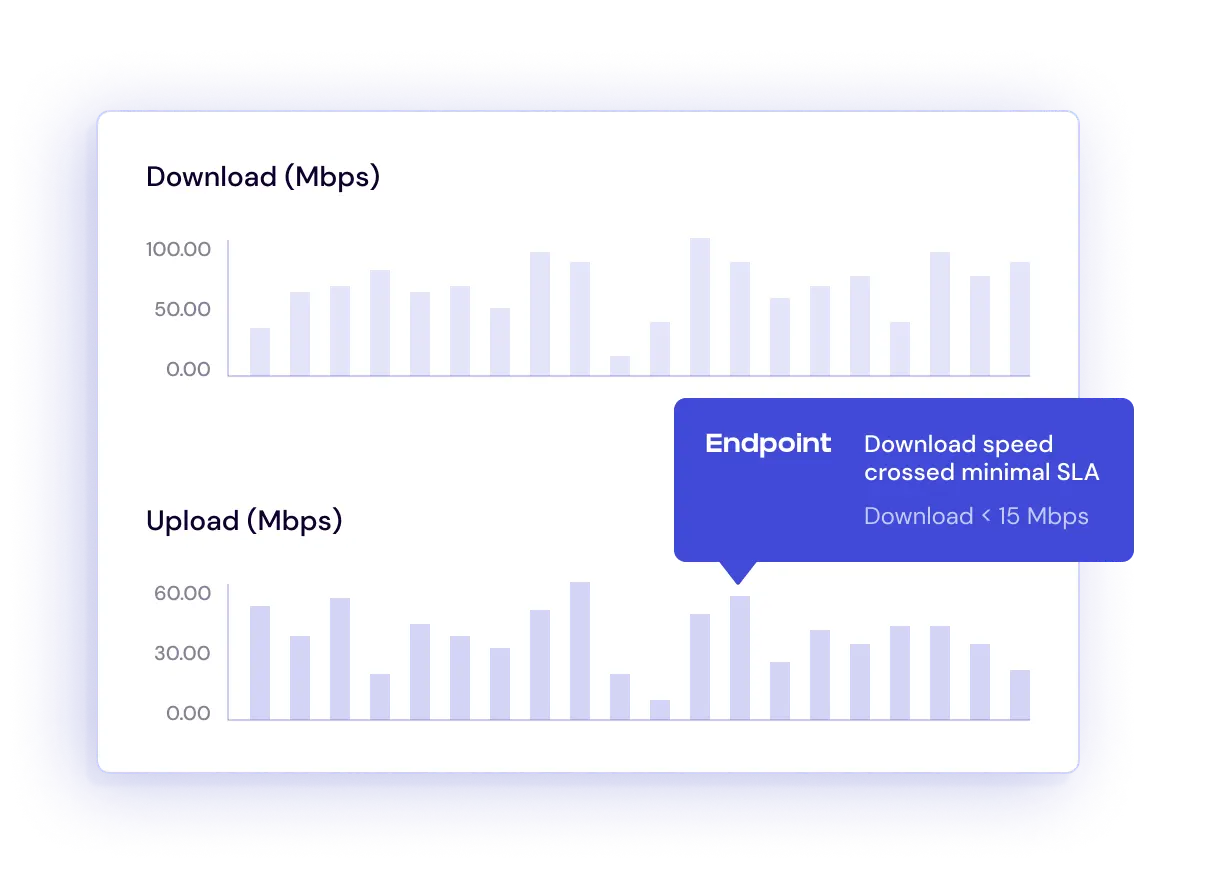Solution
Hybrid-Cloud Network Monitoring
Enhance hybrid cloud network visibility and performance
When monitoring a hybrid cloud, it’s very important to monitor key network performance metrics that can impact the performance of data transfers to and from the cloud. The same network performance metrics that are monitored in on-prem environments should be analyzed in public cloud deployments. NetBeez runs network performance tests between private and public clouds, proactively detecting network performance issues that slow down the network. NetBeez helps you move your workloads to the public cloud with confidence.
Support for hybrid cloud network environments
NetBeez offers easy to deploy cloud monitoring agents for public clouds (e.g. AWS, Microsoft Azure, and Google Cloud), as well as virtual and Docker agents for on-premise data centers. Installing new agents is as easy as:
curl -L -O https://raw.githubusercontent.com/netbeez/agent-installation/master/agent_setup.sh sudo bash agent_setup.sh --modify-interface --secret=KEY

Run network performance tests between on-prem and cloud networks
Monitor latency, packet loss, and throughput and detect connectivity and performance issues. NetBeez detects connectivity issues as well as performance degradations issues related to packet loss, high round-trip time, and other factors that affect throughput.

Testimonials

USA
With NetBeez, we are able to see how traffic is routing back to our data centers from the local offices, which helps us identify latency, packet loss, and asymmetric routing problems ... in NetBeez currently, we can monitor not only resources our users connect to in our data centers, but access to resources in the cloud.
Systems Architect

USA
We’ll see high latency times or rejected pings from a cloud or onsite server and warn clients that there is a chance they’ll start having problems. That’s the kind of partner we pride ourselves on being.
Director of Technical Operations
Handle complex networks
See the issues from the user's perspective

Get network availability under control

Reduce ticket resolution time up to 80%
Get started with NetBeez
Request a demo
Check out the product and get professional consultation with our network engineering consultant.









